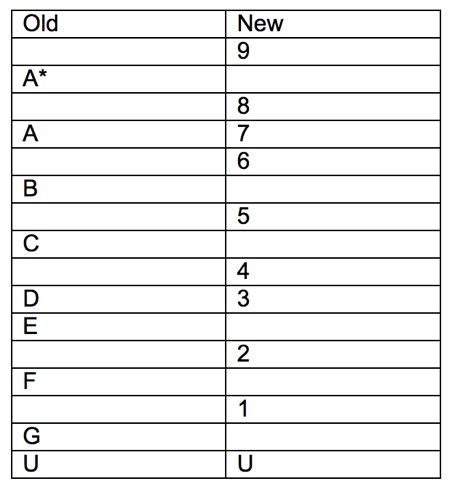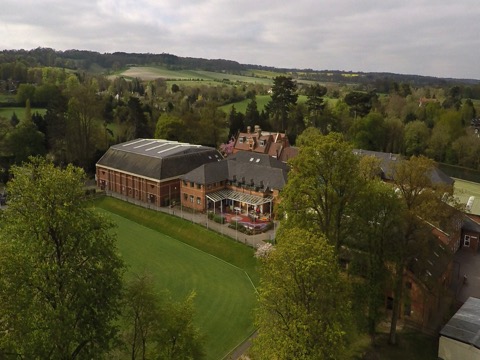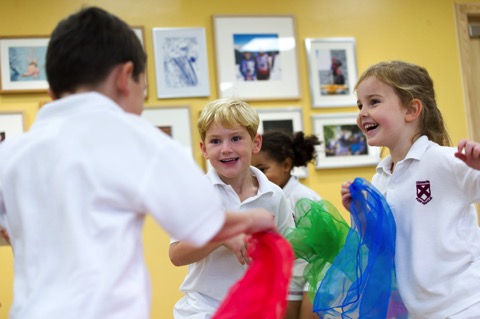Schools
ACS INTERNATIONAL SCHOOLS AWARDS BURSARIES TO LOCAL STUDENTS
24/05/18 09:21

18 students from the Surrey and Greater London area awarded bursaries for 2018/2019 academic year and beyond
Following the launch of its new bursary programme last year, ACS International Schools has now confirmed 18 bursaries to children aged 11+, 13+ and 16+ at its three UK schools in Cobham, Egham and Hillingdon for the 2018/2019 academic year.The bursaries include 13 full awards, with four students aged 11 receiving complete funding to attend ACS International Schools for seven years. In total, these bursaries represent a £2.2 million financial commitment by ACS over the next seven years for recipient students. The awards are made as ACS transitions to a charitable entity and significantly increases its investment in charitable endeavours.
Fergus Rose, Advancement Director ACS International Schools, commented:
“In the spirit of our founder’s legacy, our charitable aim is to advance education and these awards widen access to our schools for students wishing to develop an enquiring mind, an international mindset and a desire to make a difference. Everyone at ACS would like to congratulate all 18 bursary recipients on their successful applications and we look forward to seeing all they can achieve at the schools over the next year and beyond.”
Bursaries were offered to students who would benefit most from an ACS education, including the world renowned International Baccalaureate (IB) curriculum, and do not have the financial wherewithal to attend the school. All bursaries were awarded on a means-tested basis and, dependent on each student’s individual circumstances, ranged from twenty per cent to 100 per cent of the schools’ fees.
Japheth Monzon, an existing bursary student, explained what the new cohort can expect at ACS:
“I used to pass ACS Hillingdon every morning on my way to my old school and wonder what it would be like to attend. After I received my place the school did not disappoint.
“ACS is an incredibly warm and welcoming school, the teachers have been brilliant and I love the intellectual challenge of the IB. It’s more than just the academics at ACS and I also enjoy the global outlook. I know these will help me achieve my ambition of becoming a lawyer.”
Anyone interested in finding out more about ACS International Schools should register for an open morning at www.acs-schools.com/opendays.
Rebecca Evans from St John’s School, Leatherhead, discusses the new 1-9 grading system for GCSE
25/07/17 15:10
This year sees the first step in the phased introduction of the new GCSE grading system. This is the first major change to GCSE grading since the introduction of the A* grade in 1994.
The new GCSEs will be graded 9–1, rather than A*–G. Grade 9 is the highest grade, set above the current A*. The intention of the new system is to provide more differentiation, particularly among higher achieving pupils.Which subjects are affected and when?
The new reformed GCSEs in English language, English literature and mathematics were first taught in September 2015 and the first results using the new grading system will be published this August.
The second phase started in September 2016 with more subjects moving across to the new specifications including science (including separate sciences), languages, history, geography, art and design, physical education, computer science, food preparation and nutrition, design and technology, religious studies, music and drama. These subjects will be examined under the new system in summer 2018
The majority of other subjects will follow in the third tranche of changes and these will first be taught in September 2017 and examined in summer 2019. This also includes several IGCSE qualifications.
The phased introduction of the grading system means that your child might have a mixture of lettered and numbered grades if they are taking GCSEs in 2017 and 2018.
Why change the system?
The new GCSE grading scheme is part of a new curriculum which was introduced in England's schools in 2014 by Michael Gove, the Education Secretary at that time. He wanted pupils to study a wider and more demanding syllabus.
He called for a more traditional format, with less coursework than before and a greater weight on final examinations taken after two years of study.
How will it work?
The table shows how the old and new grades equate.
The lower end of the new grade 4 will be equivalent to the lower end of grade C. Approximately the same proportion of students will get a grade 4 or above who currently get a grade C or above.
The lower end of the new grade 7 will be equivalent to the lower end of grade A. Approximately the same proportion of students will get a grade 7 and above as currently get a grade A and above in any particular subject.
Although there are fewer numerical grades for the lower ability students, there are more for the higher ability allowing for greater differentiation at the mid to high ability range. Close to 20% of students across all subjects who achieve a grade 7 or above will be awarded the grade 9.

There are two areas which parents and employers should give careful consideration to. Firstly, the old and new grades are not exactly equivalent. A grade 9 will be more difficult to achieve than an A* in the current system. However, this ensures that the top possible grade truly represents the most able students.
Secondly, five C grades has traditionally been the benchmark to many opportunities. The C grade is now split between levels 4 and 5. This is to align the UK with the average PISA performance in countries such as Finland, Canada, the Netherlands and Switzerland which are often taken as a benchmark of academic excellence.
However, universities are now setting different "pass" grade equivalents. University College London says a C is now a grade 5, while already, Manchester and Liverpool have set the benchmark at grade 4.
Education Secretary Justine Greening says that for school performance tables, the government will publish "standard passes" (grade 4 and above) but also the "strong passes" (at grade 5 and above). It is yet to become clear how universities will view the new grading system.
Ofqual's view
• Broadly the same proportion of students will achieve a grade 4 and above as currently achieve a grade C and above
• Broadly the same proportion of students will achieve a grade 7 and above as currently achieve an A and above
• The aim is that, across all subjects, around 20% of those achieving grade 7 and above will be awarded grade 9, although the percentage will vary between subjects.
• The bottom of grade 1 will be aligned with the bottom of grade G
• Grade 5 will be positioned in the top third of the marks for a current Grade C and bottom third of the marks for a current Grade B.
Chief regulator Sally Collier says students who get a nine will have "performed exceptionally".
Making sure the system runs smoothly
Parents may worry that children taking GCSEs this year and next will be guinea pigs for the new grading system.
Ofqual has taken these concerns seriously and says that these students will not be disadvantaged. In 2016, in English and in maths, about 70% of 16-year-old students achieved a grade C or above and it expects a similar percentage to achieve a 4 and above in this summer's exams.
The full effect of the changes will not be known until 2020 but we can be certain that the new curriculum and grading system are designed to make sure all our students are fully stretched and to raise standards across the board.
For more information, see New GCSE 9 to 1 grades coming soon www.gov.uk/government/news
Website: www.stjohnsleatherhead.co.uk
Cranmore School unveils exciting plans to become fully co-educational
09/06/15 16:15

Exciting development as Cranmore School approaches its fiftieth anniversary.
Cranmore School unveiled plans this week for the school to become fully co-educational in stages from September 2016, marking an exciting development as the school approaches its fiftieth anniversary.
Cranmore School is widely regarded as one of the leading and top performing prep schools in the southeast with consistently outstanding inspection reports. Having established a strong co-educational Nursery, it initially began welcoming girls up to the age of seven to the school in September 2014. Today's remarkable announcement means the school will now become fully co-educational in phases, beginning in September 2016, when girls aged seven are invited to join Year 3 and then progress through the school until Year 8.
The move was announced by Michael Connolly, Headmaster at Cranmore since 2006, and is set against a positive backdrop of changing trends and a wider move towards co-education throughout the UK, which is supported by proven authoritative research.

“We are making this announcement from a position of strength to reflect Cranmore's commitment to remain the prep school of choice in Guildford, Leatherhead, Woking and the surrounding areas”, explained Mr Connolly.
The school views this move as universally beneficial to all members of its community and the announcement is fully supported by the entire governing body which includes six former parents, two of whom are previous pupils. “We shall build on the past successes of the school – academic, sport, music and other pursuits – and we believe that teaching girls and boys together will strengthen the educational and social benefit to all children in this distinctive community”, he said.
Cranmore School passionately believes in the wide and well-researched benefits of co-education, particularly as a way to prepare pupils for the ever-evolving demands and trends of the working and adult world. “The decision to educate girls and boys together throughout Cranmore is a tremendous development and we are confident there will be strong demand from discerning parents seeking a great co-educational school in Surrey”, said Mr Connolly.
Cranmore School is hosting two Open Mornings on Friday 25 September 2015 and Saturday 3 October 2015, where there will be an opportunity to tour the school's extensive, modern facilities and meet existing pupils, staff and the Headmaster. For more information about the school, and to register for the Open Mornings, please visit www.cranmoreprep.co.uk, call 01483 280340 or email admissions@cranmoreprep.co.uk